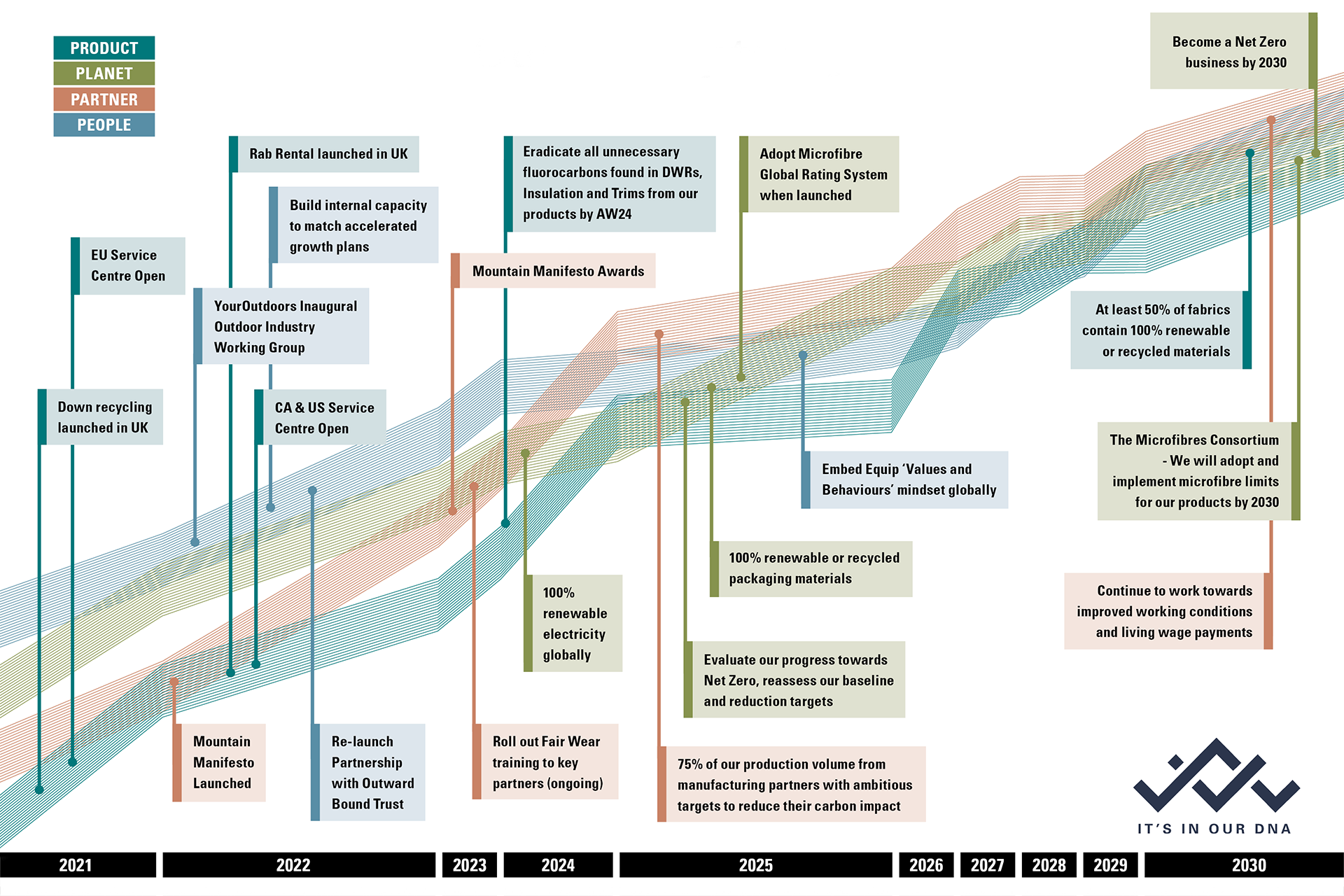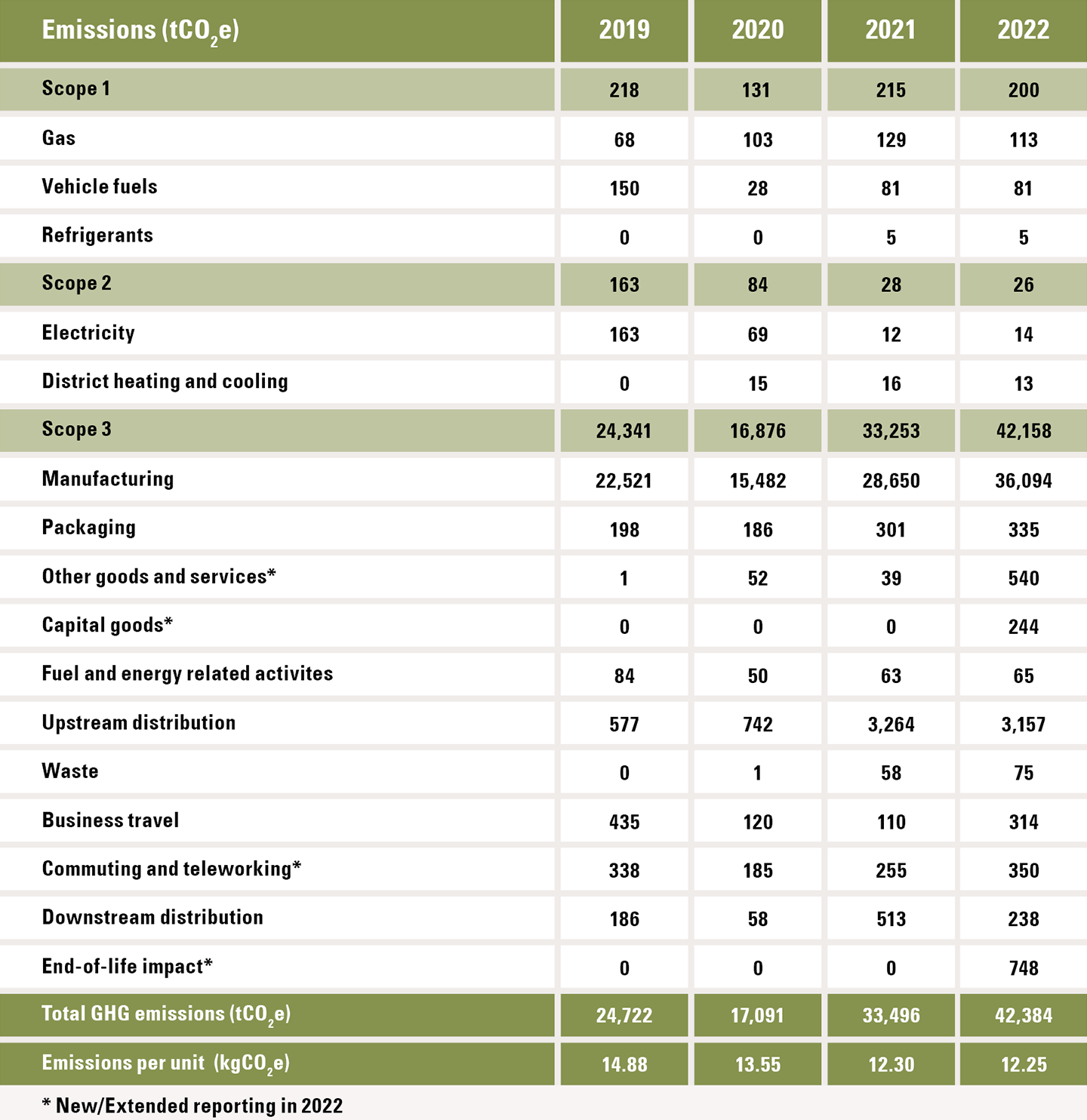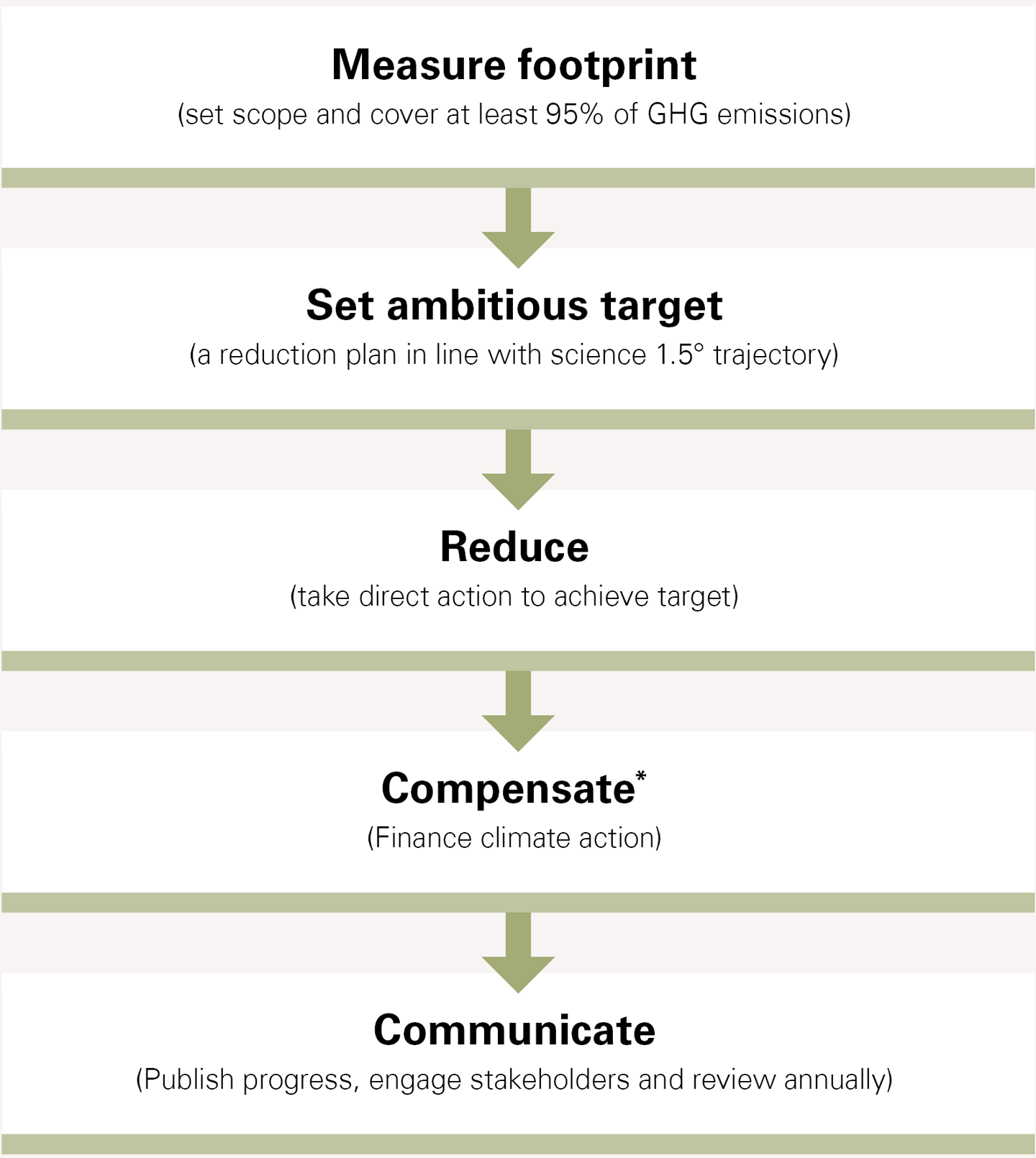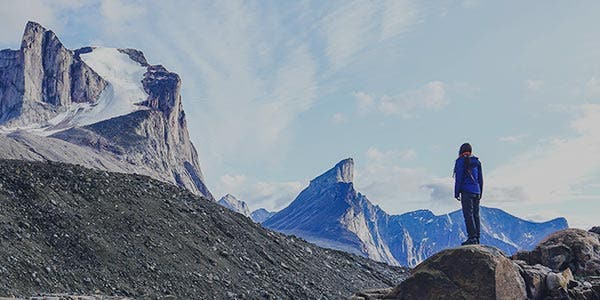

Our 2022 Carbon Emissions


We’re aligned with the Science-Based Targets Methodology
This means working to limit global warming to a max of 1.5°C above pre-industrial levels.


By 2024
100% renewable energy in global owned and leased facilities
Current progress
89% of our sites were powered by renewable energy


By 2025
100% renewable or recycled packaging materials
Current progress
All polybags contain 50% recycled materials. Beginning increase to 70%
UK, US eradicated polybags from ‘direct to consumer’ shipping. Expanding to Europe in 2022
All paper shipping bags and cardboard shipping cartons are 100% recycled materials
Plastic packaging tape replaced with paper gummed tape
Source 75% of our production volume from manufacturing partners with ambitious targets to reduce their carbon impact
Current progress
Net Zero by 2030 ambition communicated to all Tier 1 manufacturing partners
59% of our Tier 1 production has been self-assessed by Higg FEM
7% of production volume already comes from manufacturing sites with renewable energy capability.
By 2030
50% of all fabrics sourced will contain 100% renewable or recycled materials
Current progress
In 2022 we bought more recycled fabric than virgin fabric
- 66% of our fabric was made from recycled materials
- 46% of our down was 100% recycled
Our current focus is on reducing our impact in the following areas
Minimising Air Freight
Agreeing activity and targets with our manufacturing partners
Continuing with product and material design improvements
Climate Neutral Certification
We purchase high-quality, certified carbon credits to balance our verified carbon footprint each year through a process called offsetting.
This is facilitated through our partner South Pole. To achieve the Climate Neutral Label we must follow the steps outlined below.


*We compensate by supporting high-quality carbon action projects. South Pole defines high-quality carbon action credits as those that are certified under ICROA-endorsed standards such as Verified Carbon Standard (VCS) or Gold Standard (GS). Our 2023 projects can be viewed here.


